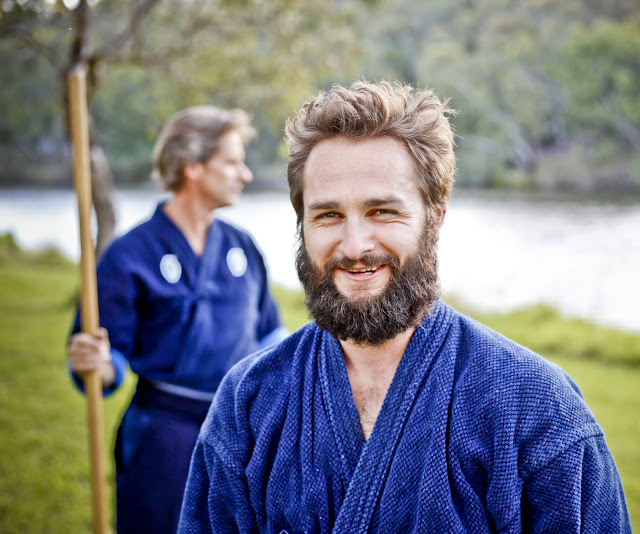Learning Styles
Learning Styles
I’ll start by stating that I have
more questions than answers on this topic.
We all have preferred methods for
learning. When it comes to
movement/martial arts, some of us would prefer kinaesthetic/tactile models of
learning. Others prefer, verbal or
visual. Which one are you?
I prefer a mix of all three to
varying degrees. In order of
preference, they would be visual, then kinaesthetic/tactile and finally
verbal/auditory. It would be the
same with most of us. There would
be a mix of all three I believe in varying percentage and order.
When teaching a technique, it’s
important to cover all three modes, but how much time and emphasis should a
teacher spend on each? As
students, some of us would love to see a technique four or five times. Others want the finer points described
and discussed in more detail.
While some just want to get up and have go at it! Age, sex, physical attributes,
nutrition, motivation and cultural bias’ will also play a role in the mix of
learning styles that benefits us most.
In weighing all this up, a teacher
must be sure to cover all three modes: kinaesthetic/tactile, visual and verbal,
but ultimately I would argue, the onus lies with the student. It is up to us to garner the flavour,
essence and finer points from the teachings, no matter who is teaching or in
what method. I, for one, have come
across good and bad teaches in my time, but perhaps it was also my own bias,
motivations, expectations and preferences that held me back or drove me forward
with ease. Who can say? The thing I keep coming back to though
is motivation. What is driving us
to learn? Why are we here to
learn? What do we hope to get out
of it? Do we have expectation or
are we open to take on whatever gifts the art may impart upon us?
Some want self-defence, cultural
riches or tradition, self-confidence, praise, or character refinement. Those who stay on for more than year or
two will no doubt attest to the fact that the priority of this list shortens,
lengthens, changes order and level of importance as you go on. Some need validation or feedback,
others need the sense of camaraderie and belonging in order to progress. Some need rankings; others need
gradings for a goal to focus on or a yardstick to measure by.
How best do you learn? What drives you?Travis de Clifford
Ikkyu
Sessa Takuma Dojo


Comments